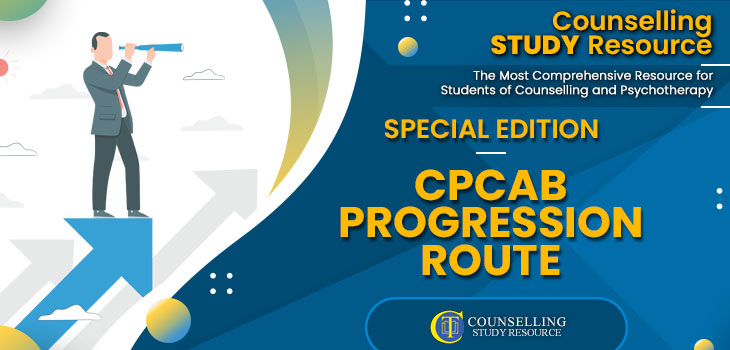Special Edition: CPCAB Progression Route
In this special episode of the Counselling Tutor Podcast, Rory Lees-Oakes speaks with Derek Cunningham from the CPCAB on choosing the right courses to become a fully qualified counsellor.
There is more than one way to study counselling, and throughout this episode, Rory and Derek will take us through some of the options available, and the key things to consider when choosing the best progression route for you:
- Make sure that at the end of whatever course you take, you will be qualified to join a professional membership organisation.
- Take courses that are Ofqual approved in order to be able to join a professional body.
- Be sure to join an ethical body that is accredited with professional standards authority.
- Not all level 2 and 3 qualifications are equivalent – you will need classroom and practical hours in order to progress further.
- It’s incredibly important that you have been amongst peers and received feedback through discussion.
CPCAB is working on a helpful model to show the progression of both the CPCAB route and a degree route. This could help in choosing the route that is best for you.
Some of the differences in these routes include:
CPCAB Progression Route:
- A more vocational/practical route.
- Educated up to level 4.
- Part-time study.
Degree Route:
- A more academic route.
- With an undergraduate degree, you will be educated up to level 6.
- Full-time study.
It’s important to remember that neither of these routes is particularly better than the other, it is about looking at which one is better for you.
Consider:
- Cost
- Whether full time or part-time works better for you.
- The likelihood of being able to finish once you have started.
Whichever route you choose, what’s important is that achieve what you wanted by the end of it – being a fully qualified counsellor.
Free Resource from CPCAB
>> Download the 'Planning Your Counselling Journey' Infographic from CPCAB here <<
CPCAB Level 2 Certificate in Counselling Skills
This is the first step on your journey to become a qualified counsellor. With this qualification you’ll practise helping skills and explore basic counselling theory and ethics. Personal development will play a big part as you reflect on your life experience and your place in the learning community. You’ll consider: What is important about difference and diversity? How are we different and how does it affect us? This qualification can help in a wide range of jobs such as working with individuals and groups, advocacy roles, colleagues, as well as friends and family. If you want to continue training as a counsellor, it’s preparation to move on to Level 3 and beyond.
CPCAB Level 3 Certificate in Counselling Studies
It’s time to take the next step on your journey to become a qualified counsellor. On this qualification you’ll start to look at a range of counselling theories and continue to practise your skills with your fellow learners. As you prepare to move on to practitioner training at Level 4, you’ll be increasing your skills and knowledge, building on the learning you gained at Level 2. This qualification can enhance your employability and support you in roles such as mentoring, advocacy, health and social care or any role where you are helping people.
CPCAB Level 4 Diploma in Therapeutic Counselling
This is the final step on your journey to become a fully qualified counsellor. You’ll spend two years part-time immersed in a learning community. On successful completion, you’ll be a trained and qualified counsellor and you’ll be eligible to join a recognised professional membership body such as BACP, NCS or ACC. You’ll become experienced in working with clients within a counselling agency, gaining 100 ‘client’ hours of this work as part of the course. The in-depth study at this level will support your personal development and professional skills, getting you ready to move into a career as a professional counsellor. You might choose to seek employment as a counsellor or support a wide range of health and social care roles, including management, mentoring and support, advocacy and work in the mental health sector.


